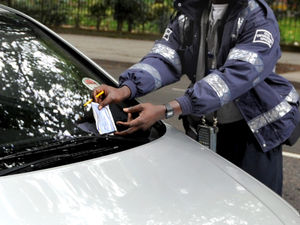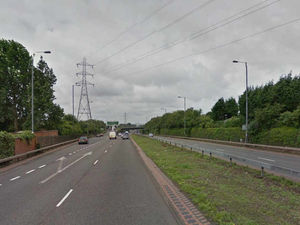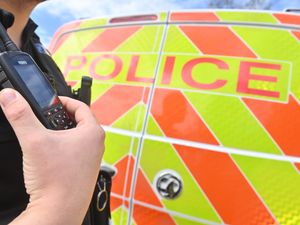REVEALED: How to fight an unfair parking ticket
The number of parking tickets dished out to drivers in the UK has soared to record levels in the past year.

According to new research, around one million additional tickets have been handed out over the period, helped in no small part by a steep rise in the number of private firms getting in on the action.
Local authorities have long been accused of using parking regulations as a cash cow.
Sandwell Council raised more than £700,000 last year alone in parking fines, while Wolverhampton Council brought in £1.7 million over three years and drivers handed Walsall Council £1.2m.
But it is the private parking industry – which is far less regulated – that has caused the most controversy.
Analysis of Government data by the RAC Foundation, revealed that a staggering 5.65 million vehicle keeper records were obtained from the DVLA last year by parking firms chasing fines.
This marks an increase of 20 per cent since 2016/17, when 4.71 million tickets were issued.
Motorists can land fines of up to £100 for contraventions of the law, which includes overstaying in parking spaces and failing to pay the correct fee.
RAC Foundation director Steve Gooding, said: “Each year we publish this analysis and each year we are not only astonished by the numbers involved, but also by the fact that those numbers keep rocketing.
“Pursuing so many people must be a major administrative task for the companies involved, but the questions the numbers really beg are what’s going wrong? Are Britain’s motorists really flouting the rules on such an industrial scale?”
But experts say that all too often people accept (and pay) unfair tickets rather than fighting them.
Here’s how to challenge a parking ticket, with advice from Sarah Garner, a solicitor at DAS Law.
Parking tickets from private firms will be denoted with ‘Parking Charge Notice’ while officer tickets will be marked with either ‘Penalty Charge Notice’, ‘Excess Charge Notice’ or ‘Fixed Penalty Notice’.
Check if the parking firm is a member of an approved trade body. BPA and IPC approved operators can access DVLA details to obtain your name and address. Non-members don’t, so it is unlikely that they will be able to find you and pursue you for payment.
There are several reasons why you may believe that you have the right to challenge a ticket. For example, signage might have been incorrect or insufficient, the warden may have got it wrong, there may be an error on the ticket, your car could have been stolen or you didn’t own the car at the time.
To appeal a parking ticket drivers should gather as much relevant evidence as they can to support their case. This includes photographs of unclear signs, markings and lines and where your car was at the time, plus anything else you believe to be relevant.
Additionally, collect any correspondence you have with the company and proof of any mitigating circumstances (eg. if you break down), as well as any witness statements.
If you plan to appeal DO NOT pay your ticket immediately, but make sure to check how long you have to challenge it.
Adopt a ‘belt and braces’ approach. Initial appeals should be sent to the ticket issuer – including any relevant evidence – followed by a formal appeal to the relevant complaints scheme in place at the parking firm.
You should also report the ticket to the landowner. For example, if you get a ticket at a hospital, report it to the relevant NHS Trust (this is important, as many hospital parking schemes are run by private firms).
If your appeal is rejected, you can appeal to an independent organisation known as POPLA (Parking on Private Land Appeals), which is run by the Ombudsman Service.
Some people have successfully managed to avoid paying a parking ticket by just ignoring it – if you do this, the only way the parking firm can take action is by taking you to court. However, ignoring a ticket is risky – if the firm decides to call your bluff and take you to court, you could end up paying a lot more.




